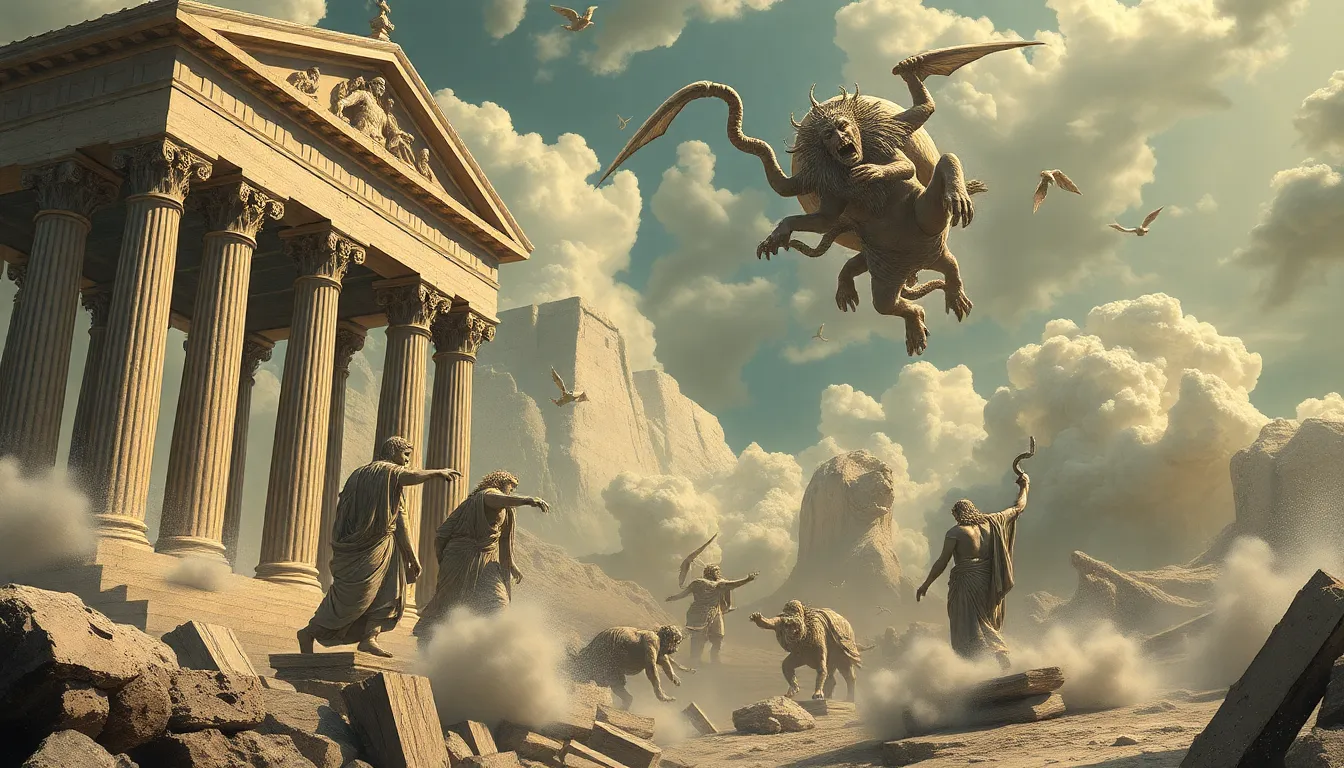The Chaotic World of Greek Myths: An Exploration of Themes
I. Introduction to Greek Myths
Greek mythology is a rich tapestry of stories and characters that have shaped Western literature and culture for centuries. Defined as a collection of myths and legends belonging to the ancient Greeks, these narratives explain the origins of the world, the nature of the gods, and the lives of heroes and mortals.
One of the most striking features of Greek mythology is its chaotic nature. The narratives often defy linear storytelling, filled with contradictions, complex relationships, and unexpected twists. This chaotic essence mirrors the unpredictability of life itself, making the myths both relatable and timeless.
The purpose of this article is to delve into the myriad themes present in Greek mythology, focusing on the concepts of chaos, power, fate, and the roles of divine and mortal characters.
II. The Role of Chaos in Greek Creation Myths
At the heart of Greek creation myths lies the concept of primordial chaos—a formless void from which the cosmos emerged. This chaos is not merely disorder but a necessary precursor to creation, signifying the potential for order and structure.
The emergence of order from chaos is a recurring theme in various mythological stories. As the gods and the universe took shape, the chaos transformed into a structured reality, illustrating the balance between chaos and order.
Case studies such as Hesiod’s “Theogony” provide insight into these creation narratives. In “Theogony,” chaos is described as the first entity, followed by the birth of Gaia (the earth), Tartarus (the abyss), and Eros (love), showcasing the transition from chaos to a structured cosmos.
- Hesiod’s “Theogony” emphasizes the importance of chaos in the creation process.
- Other narratives, such as the Orphic creation myth, also highlight chaos as a source of life.
III. Themes of Power and Hubris
The dynamics of power and hubris are central to many Greek myths, particularly in the interactions between gods and mortals. The gods, often depicted as powerful yet capricious beings, wield their influence over humans, leading to a complex relationship characterized by reverence and fear.
Hubris, or excessive pride, is a recurring theme in these narratives, often resulting in dire consequences for those who overstep their bounds. This theme serves as a cautionary tale about the dangers of arrogance and the importance of humility.
Notable examples include:
- Icarus: His hubris leads him to fly too close to the sun, resulting in his tragic fall.
- Narcissus: His obsession with his own reflection exemplifies the consequences of vanity.
IV. The Intersection of Fate and Free Will
Greek mythology is deeply concerned with the concepts of fate and free will, often portraying a tension between the two. Fate is depicted as an inescapable force, governed by the Moirai (Fates), who determine the destinies of both mortals and gods.
Despite the omnipresence of fate, many characters struggle against their predetermined paths, embodying the human desire for autonomy. These narratives explore the conflict between accepting one’s fate and the urge to exercise free will.
Key narratives illustrating this theme include:
- Oedipus: His attempt to avoid a prophesied fate ultimately leads him to fulfill it.
- Pandora: Her curiosity and the opening of the box symbolize the complexities of choice and consequences.
V. The Complexity of Divine Relationships
The relationships among the Greek gods are marked by complexity, characterized by familial dynamics, rivalries, and alliances. These interactions often mirror human relationships, filled with jealousy, love, betrayal, and reconciliation.
Divine rivalries, such as that between Zeus and Prometheus or Hera and Heracles, create chaos in the divine realm, which often spills over into human affairs. The gods’ actions frequently have profound implications for mortals, illustrating the interconnectedness of the divine and human worlds.
- Family dynamics among the gods highlight themes of loyalty and conflict.
- Rivalries can lead to catastrophic events, affecting both gods and mortals.
VI. The Role of Women in Greek Myths
Women in Greek mythology are portrayed in various ways, from powerful goddesses to tragic mortals. Their representation reflects the duality of chaos and order, often embodying both creation and destruction.
Female figures in Greek myths are complex and multifaceted, such as:
- Hera: The queen of the gods, representing marriage and fidelity, yet often embroiled in chaos due to her jealousy.
- Athena: The goddess of wisdom and warfare, symbolizing strategic thinking and strength.
- Medusa: A tragic figure whose transformation into a monster evokes themes of victimization and power.
VII. The Influence of Greek Myths on Modern Culture
The legacy of Greek myths endures in modern literature and art, influencing countless works across genres and mediums. Themes of chaos, power, and fate continue to resonate in contemporary storytelling, reflecting the complexities of modern society.
Adaptations of these ancient narratives can be found in:
- Literature, such as novels that reinterpret mythological themes.
- Film and television, where mythological characters and stories are reimagined for new audiences.
The chaotic nature of these myths often parallels contemporary societal issues, making them relevant for discussions on human behavior, morality, and the unpredictability of life.
VIII. Conclusion
In exploring the chaotic world of Greek myths, we uncover themes that delve deep into human nature—power, hubris, fate, and the complexity of relationships. These timeless narratives continue to hold relevance, offering insights into our own lives and the world around us.
The enduring allure of Greek mythology lies in its chaotic beauty, reminding us that from chaos can emerge order, and that the struggles of gods and mortals alike reflect our own journeys through life.




